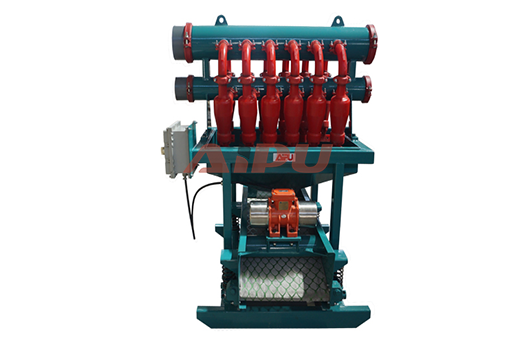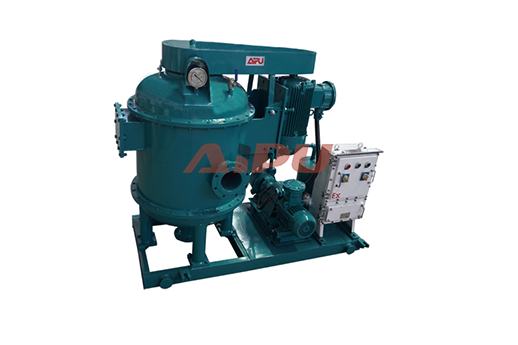Revolutionizing Drilling Operations with Modern Tech
An effective solids control system is crucial in various industries, especially in oil and gas drilling. This system is designed to separate solids from drilling fluids, ensuring the efficiency and safety of operations. The following sections will delve into the science behind such a system.
Separation Mechanisms
The core of a solids control system lies in its separation mechanisms. There are mainly two types: physical and chemical separation. Physical separation involves using equipment like shale shakers, hydrocyclones, and centrifuges. Shale shakers use vibrating screens to separate large solids from the drilling fluid. Hydrocyclones rely on centrifugal force to separate particles based on their size and density. Centrifuges, on the other hand, use high - speed rotation to achieve more precise separation of fine solids. Chemical separation, on the other hand, uses additives to flocculate or coagulate the solids, making them easier to separate from the fluid.
Fluid Rheology
Fluid rheology plays a vital role in solids control. The viscosity and density of the drilling fluid affect the separation process. A fluid with the right viscosity can carry the solids to the surface and then release them during the separation process. If the viscosity is too low, the solids may settle too quickly in the wellbore, causing blockages. If it is too high, it can be difficult to separate the solids from the fluid. Density also matters; a proper density helps to balance the pressure in the wellbore and influences the performance of separation equipment.
Particle Characteristics
The characteristics of the solids particles, such as size, shape, and density, impact the effectiveness of the solids control system. Larger particles are generally easier to separate using mechanical means like shale shakers. Smaller particles, however, require more advanced separation techniques, such as the use of centrifuges. The shape of the particles can also affect their behavior in the fluid. For example, irregularly shaped particles may be more difficult to separate compared to spherical ones. Density differences between the solids and the fluid are used in hydrocyclones and centrifuges to achieve separation.
System Integration and Optimization
An effective solids control system requires proper integration and optimization of all its components. The different separation equipment should be arranged in a logical sequence to ensure maximum efficiency. For example, shale shakers are usually the first stage of separation, followed by hydrocyclones and then centrifuges. Additionally, continuous monitoring and adjustment of the system parameters are necessary. This includes monitoring the flow rate, pressure, and composition of the drilling fluid. By optimizing these parameters, the system can be made more energy - efficient and effective in separating solids.
In conclusion, understanding the science behind an effective solids control system is essential for its successful implementation. By considering separation mechanisms, fluid rheology, particle characteristics, and system integration and optimization, industries can ensure the smooth operation of their drilling processes and reduce environmental impacts.

Separation Mechanisms
The core of a solids control system lies in its separation mechanisms. There are mainly two types: physical and chemical separation. Physical separation involves using equipment like shale shakers, hydrocyclones, and centrifuges. Shale shakers use vibrating screens to separate large solids from the drilling fluid. Hydrocyclones rely on centrifugal force to separate particles based on their size and density. Centrifuges, on the other hand, use high - speed rotation to achieve more precise separation of fine solids. Chemical separation, on the other hand, uses additives to flocculate or coagulate the solids, making them easier to separate from the fluid.
Fluid Rheology
Fluid rheology plays a vital role in solids control. The viscosity and density of the drilling fluid affect the separation process. A fluid with the right viscosity can carry the solids to the surface and then release them during the separation process. If the viscosity is too low, the solids may settle too quickly in the wellbore, causing blockages. If it is too high, it can be difficult to separate the solids from the fluid. Density also matters; a proper density helps to balance the pressure in the wellbore and influences the performance of separation equipment.
Particle Characteristics
The characteristics of the solids particles, such as size, shape, and density, impact the effectiveness of the solids control system. Larger particles are generally easier to separate using mechanical means like shale shakers. Smaller particles, however, require more advanced separation techniques, such as the use of centrifuges. The shape of the particles can also affect their behavior in the fluid. For example, irregularly shaped particles may be more difficult to separate compared to spherical ones. Density differences between the solids and the fluid are used in hydrocyclones and centrifuges to achieve separation.
System Integration and Optimization
An effective solids control system requires proper integration and optimization of all its components. The different separation equipment should be arranged in a logical sequence to ensure maximum efficiency. For example, shale shakers are usually the first stage of separation, followed by hydrocyclones and then centrifuges. Additionally, continuous monitoring and adjustment of the system parameters are necessary. This includes monitoring the flow rate, pressure, and composition of the drilling fluid. By optimizing these parameters, the system can be made more energy - efficient and effective in separating solids.
In conclusion, understanding the science behind an effective solids control system is essential for its successful implementation. By considering separation mechanisms, fluid rheology, particle characteristics, and system integration and optimization, industries can ensure the smooth operation of their drilling processes and reduce environmental impacts.








